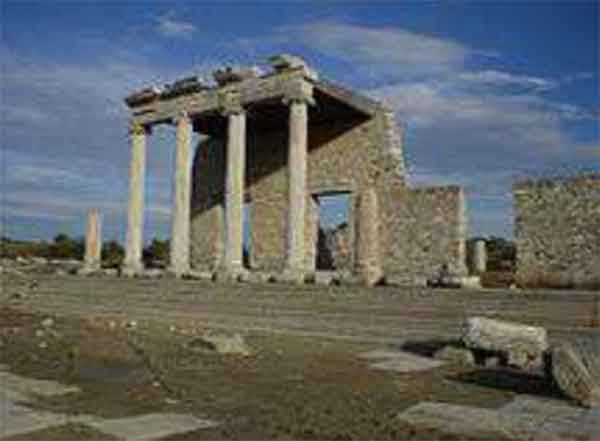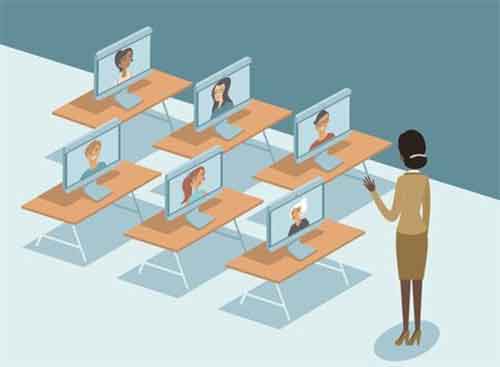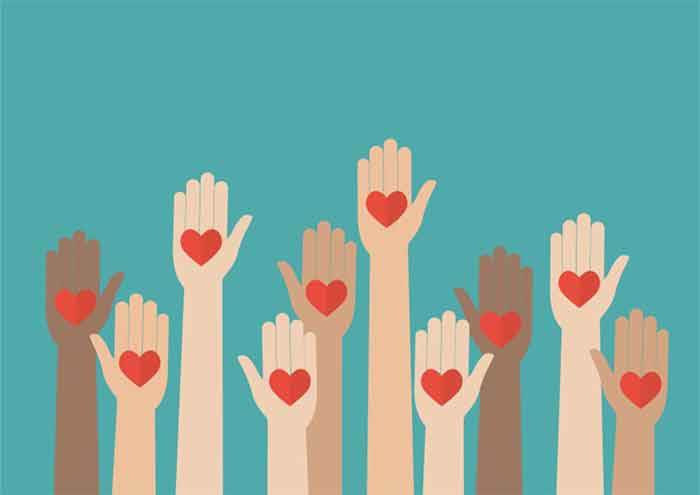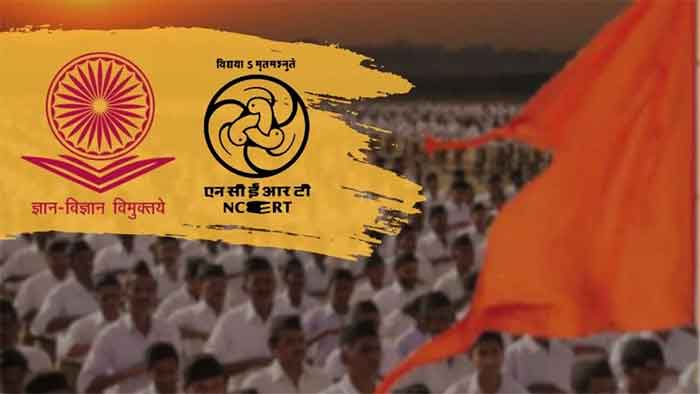
Human history as cultural history
We need to reform our teaching of history so that the emphasis will be placed on the gradual growth of human culture and knowledge, a growth to which all nations and ethnic groups have contributed.
A new freely downloadable book
I would like to announce the publication of a book which presents the history of education, from early times until the present, and in many different civilizations. The book may be freely downloaded and circulated from the following link:
http://eacpe.org/app/wp-content/uploads/2020/05/Lives-in-Education-by-John-Scales-Avery.pdf
This book is part of a series on cultural history. Here are links the other books in the series that have, until now, been completed:
LIVES IN POETRY
http://eacpe.org/app/wp-content/uploads/2020/03/Lives-in-Poetry-by-John-Scales-Avery.pdf
LIVES IN PAINTING
http://eacpe.org/app/wp-content/uploads/2020/03/Lives-in-Painting-by-John-Scales-Avery.pdf
LIVES IN ENGINEERING
http://eacpe.org/app/wp-content/uploads/2020/01/Lives-in-Egineering-by-John-Scales-Avery.pdf
LIVES IN ASTRONOMY
http://eacpe.org/app/wp-content/uploads/2020/01/Lives-in-Astronomy-by-John-Scales-Avery.pdf
LIVES IN CHEMISTRY
http://eacpe.org/app/wp-content/uploads/2019/11/Lives-in-Chemistry-by-John-Scales-Avery.pdf
LIVES IN MEDICINE
http://eacpe.org/app/wp-content/uploads/2019/09/Lives-in-Medicine-John-Scales-Avery.pdf
LIVES IN ECOLOGY
http://eacpe.org/app/wp-content/uploads/2019/09/Lives-in-Ecology-by-John-Scales-Avery.pdf
LIVES IN PHYSICS
http://eacpe.org/app/wp-content/uploads/2019/07/Lives-in-Physics-by-John-Scales-Avery.pdf
LIVES IN ECONOMICS
http://eacpe.org/app/wp-content/uploads/2019/06/Lives-in-economics-by-John-Scales-Avery.pdf
LIVES IN THE PEACE MOVEMENT
http://eacpe.org/app/wp-content/uploads/2019/06/Lives-in-the-peace-movement-by-John-Scales-Avery.pdf
The long human childhood
When a baby antelope is born, it staggers unsteadily to its feet, but after a few minutes it is able to follow its mother and the herd. Contrast this with the complete helplessness of a human baby! As our society becomes more and more complex and knowledge-based, the period of dependency of young humans has become almost absurdly long. In medicine and the sciences, many years of postgraduate training are required, and often young people are in their early thirties before they are fully qualified.
But education is an investment that gives dividends. The life of a “knowledge worker” is extremely interesting and rewarding.
Knowledge-based economies
Economic activity is usually divided into two categories, 1) production of goods and 2) provision of services. It is the rate of production of goods that will be limited by the carrying capacity of the global environment. Services that have no environmental impact will not be constrained in this way. Thus a smooth transition to a sustainable economy will involve a shift of a large fraction the work force from the production of goods to the provision of services.
Within the service sector, many jobs involve a high degree of education. “Knowledge workers”, for example computer programmers, physicians, pharmacists, architects, engineers, scientists, design thinkers, public accountants, lawyers, and academics, are those whose personal capital consists of a high degree of education. They think for a living; and their activities have very small ecological footprints.
In his recent popular book, “The Rise of the Creative Class”, the economist Richard Florida points out that in a number of prosperous cities – for example Stockholm – a large fraction of the population is already engaged in what might be called creative work – a type of work that uses few resources, and produces few waste products – work which develops knowledge and culture rather than producing material goods. For example, producing computer software requires few resources and results in few waste products. Thus it is an activity with a very small ecological footprint. Similarly, education, research, music, literature and art are all activities that do not weigh heavily on the carrying capacity of the global environment. Florida sees this as a pattern for the future, and maintains that everyone is capable of creativity. He visualizes the transition to a sustainable future economy as one in which a large fraction of the work force moves from industrial jobs to information-related work.
Culture, education and human solidarity
Since culture and knowledge are shared among all nations, work in culture and education leads societies naturally towards internationalism and peace.
Economies based on a high level of consumption of material goods are unsustainable and will have to be abandoned by a future world that renounces the use of fossil fuels in order to avoid catastrophic climate change, a world where non-renewable resources such as metals will become increasingly rare and expensive.
How then can full employment be maintained? The creation of renewable energy infrastructure will provide work for a large number of people; but in addition, sustainable economies of the future will need to shift many workers from jobs in industry to jobs in the service sector.
Within the service sector, jobs in culture and education are particularly valuable because they will help to avoid the disastrous wars that are currently producing enormous human suffering and millions of refugees, wars that threaten to escalate into an all-destroying global thermonuclear war.
Human nature has two sides: It has a dark side, to which nationalism and militarism appeal; but our species also has a genius for cooperation, which we can see in the growth of culture.
Our modern civilization has been built up by means of a worldwide exchange of ideas and inventions. It is built on the achievements of many ancient cultures.
In the teaching of history, our common global culture, the music, science, literature and art that all of us share, should be presented as a precious heritage – far too precious to be risked in a thermonuclear war.
We have to extend our loyalty to the whole of the human race, and to work for a world not only free from nuclear weapons, but free from war.
A war-free world is not utopian but very practical, and not only practical but necessary. It is something that we can achieve and must achieve.
Today there are large regions, such as the European Union, where war would be inconceivable. What is needed is to extend these.
Nor is a truly sustainable economic system utopian or impossible. To achieve it, we should begin by shifting jobs to the creation of renewable energy infrastructure, and to the fields of culture and education. By so doing we will support human solidarity and avoid the twin disasters of catastrophic war and climate change.
Other books and articles about global problems are on these links
http://eacpe.org/about-john-scales-avery/
https://wsimag.com/authors/716-john-scales-avery
I hope that you will circulate the links in this article to friends and contacts who might be interested.
John Scales Avery is a theoretical chemist at the University of Copenhagen. He is noted for his books and research publications in quantum chemistry, thermodynamics, evolution, and history of science. His 2003 book Information Theory and Evolution set forth the view that the phenomenon of life, including its origin, evolution, as well as human cultural evolution, has its background situated in the fields of thermodynamics, statistical mechanics, and information theory. Since 1990 he has been the Chairman of the Danish National Group of Pugwash Conferences on Science and World Affairs. Between 2004 and 2015 he also served as Chairman of the Danish Peace Academy. He founded the Journal of Bioenergetics and Biomembranes, and was for many years its Managing Editor. He also served as Technical Advisor to the World Health Organization, Regional Office for Europe (19881997).
http://www.fredsakademiet.dk/ordbog/aord/a220.htm. He can be reached at [email protected]. To know more about his works visit this link. http://eacpe.org/about-john-scales-avery/
SIGN UP FOR COUNTERCURRENTS DAILY NEWS LETTER















































